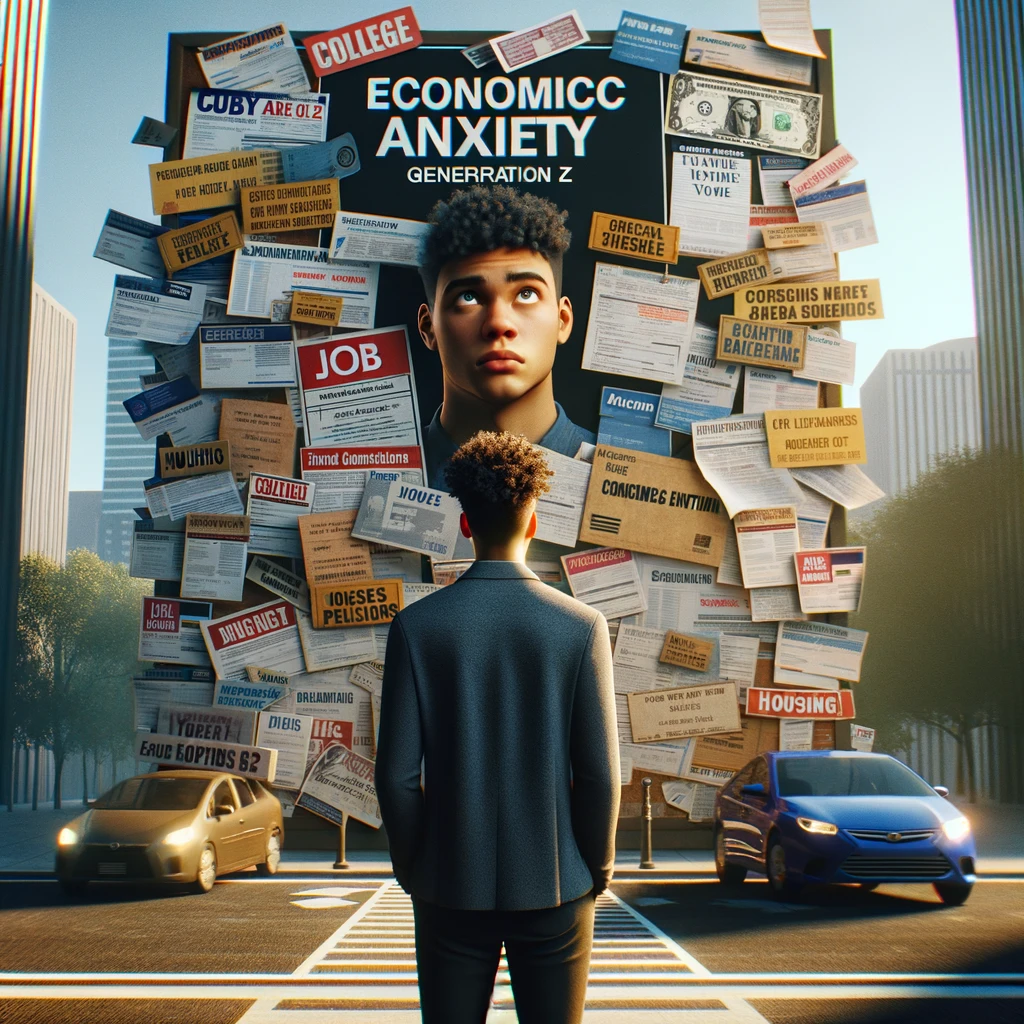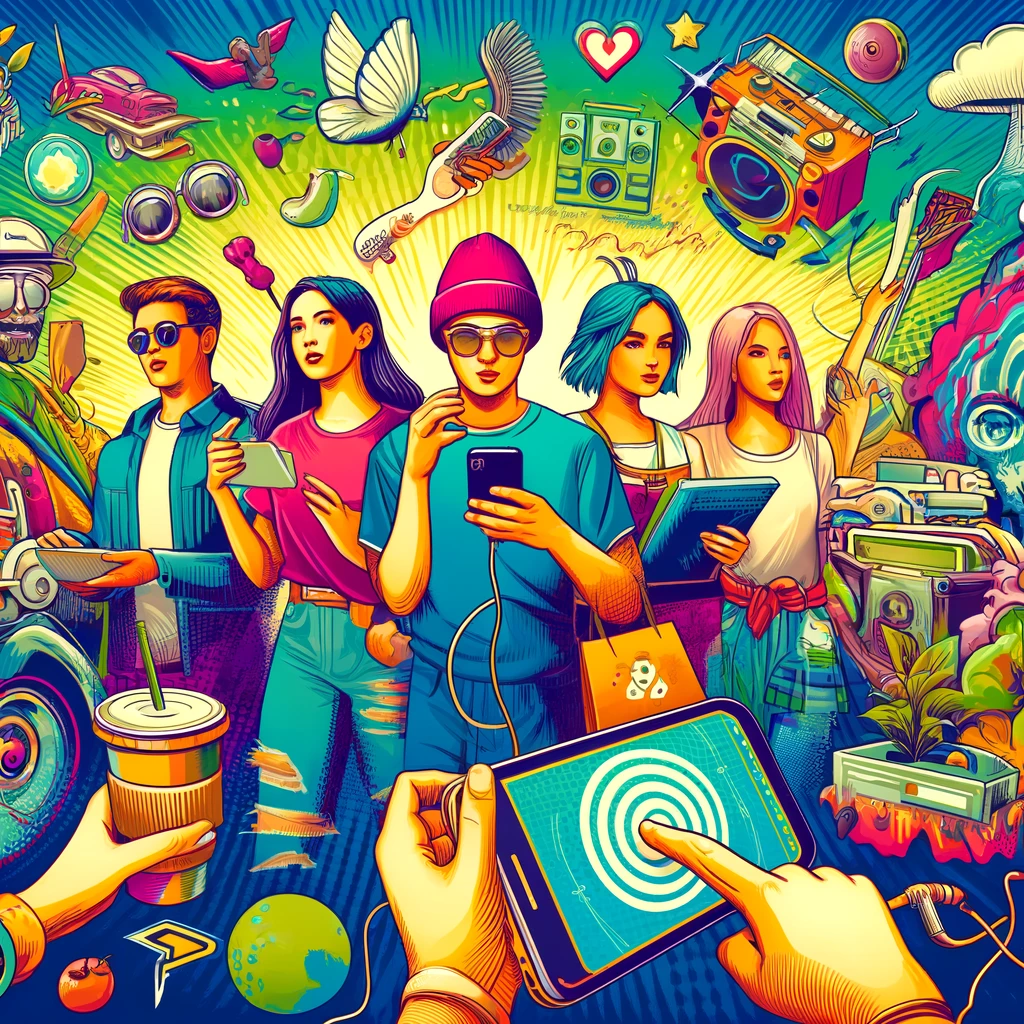
In today’s fast-paced digital world, Generation Z faces a unique set of challenges that set them apart from previous generations. Born between the late 1990s and early 2010s, this generation is coming of age during a time of significant social, technological, and environmental change. This article delves into ten concerning trends affecting Gen Z, highlighting the complexities of their experiences and the urgent need for supportive interventions.
1. Mental Health Decline

Recent years have seen a noticeable decline in the mental health of young people, with Gen Z at the forefront. Reports suggest an increase in anxiety, depression, and stress-related illnesses among this age group. Factors such as academic pressures, social media influence, and the global pandemic contribute significantly to their mental health challenges. Addressing these issues requires a holistic approach that includes improved access to mental health services and greater awareness and education.
2. Economic Anxiety

Economic instability has left Gen Z with significant anxiety about the future. The aftershocks of the 2008 financial crisis, coupled with current economic disruptions, have instilled a sense of uncertainty in these young individuals. Many express concerns about job security, the cost of higher education, and the feasibility of achieving traditional markers of adulthood like home ownership. Policy changes aimed at economic recovery and job creation are critical to alleviating these fears.
3. Environmental Concerns

Climate change is arguably the most pressing issue for Gen Z, a generation deeply invested in sustainability and environmental issues. They are acutely aware of the impacts of climate change and the need for urgent action to preserve the planet. However, this awareness also brings with it a burden of “eco-anxiety,” as young people worry about the health of their future environment. Empowering this generation through education and leadership in sustainability initiatives is essential.
4. Digital Dependency

While technology offers unprecedented connectivity and access to information, it also raises concerns about over-reliance among Gen Z. Issues such as screen addiction, cyberbullying, and online privacy are prevalent, affecting their social skills and overall well-being. Promoting digital literacy and responsible usage, alongside fostering environments that encourage offline interactions, is necessary to mitigate these risks.
5. Political Polarization

Gen Z is growing up in a highly polarized political environment, which can impact their understanding of democracy and civic engagement. Exposure to extreme viewpoints, especially on social media, can skew their perceptions and discourage participation in constructive political discourse. Encouraging critical thinking and exposure to diverse viewpoints could help bridge divides and foster a more inclusive political landscape.
6. Educational Disruption

The shift to online learning during the COVID-19 pandemic has significantly disrupted traditional educational pathways for Gen Z. While some adapted quickly, others struggled with the lack of face-to-face interaction and tailored support. As education continues to evolve, ensuring access to quality education and support systems, regardless of format, remains a priority.
7. The Gig Economy

The rise of gig work presents both opportunities and challenges for Gen Z. While offering flexibility and independence, it also comes with instability and a lack of traditional employment benefits. Young workers navigating this new economic landscape need guidance and resources to balance short-term benefits with long-term financial stability.
8. Social Isolation

Despite being the most connected generation in history, Gen Z reports high levels of loneliness and social isolation. The paradox of online connectivity versus real-life interaction is a significant factor. Strengthening community ties and promoting inclusive social activities can help alleviate these feelings of isolation.
9. Shift in Family Dynamics

Changes in family structures and dynamics over the past decades have affected Gen Z’s perspectives on relationships and family life. With higher rates of single-parent households, delayed marriage, and changing norms, young people are redefining what family means to them. Understanding and supporting these changing dynamics is crucial for their development and well-being.
10. Misinformation and Information Overload

The digital age brings with it an overwhelming influx of information, making it difficult for Gen Z to discern truth from misinformation. The consequences are profound, affecting their decisions and perceptions of the world. Educational initiatives that promote media literacy are vital in empowering them to navigate this complex information landscape effectively.
Addressing the Trends is Essential

Addressing these trends is essential for supporting Gen Z as they navigate the complexities of modern life. Stakeholders including policymakers, educators, and parents must collaborate to create environments that foster resilience, adaptability, and growth among this young generation. As we move forward, it’s clear that understanding and addressing the unique challenges faced by Gen Z is not just beneficial but imperative for the future health and success of our society.

